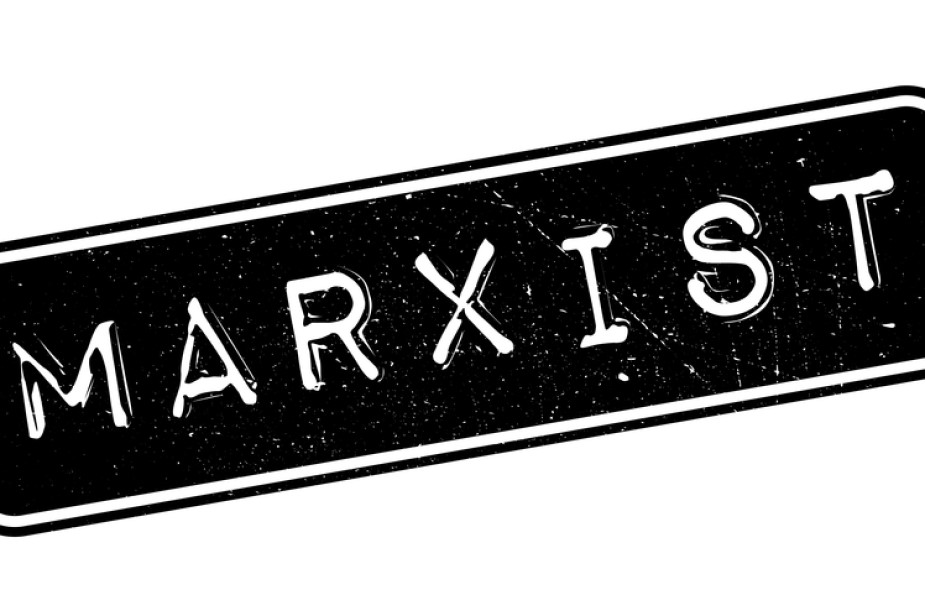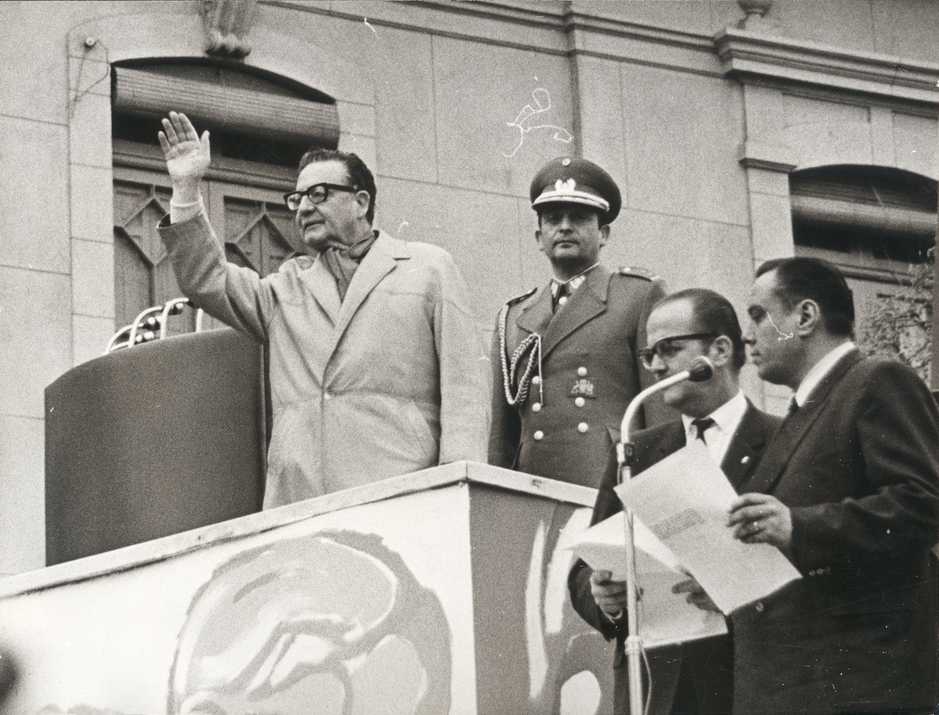Political polarization has become an important issue in recent years. On matters of public policy it seems like there is little room for rational conversation when people of different political stripes cannot agree on the same basic facts. Solutions to the problem of polarization are likely to be as complex and as plural as the causes of the problem, but there is one issue that may be an important starting point: meaning. A lack of clarity in the meaning of certain terms in political discussion only weakens our ability to engage in fruitful dialog. It fragments our political culture and encourages us to continue to talk past one another. If refining the meanings of our words helps to improve our political discussions, then the issue takes on a moral importance as well as a logical one.
For the first example, let’s consider what the term “socialist” means. The issue has become important as presidential candidate Bernie Sanders has at times used terms like “socialist” or “democratic socialist” to describe his positions. Yet according to some he is not a socialist at all, he is a democratic socialist and not a regular socialist, or perhaps he is not a democratic socialist but a social democrat, or still others insist that he is not a socialist but an all-out Marxist. Why is it so difficult for us to decide what Sanders is? Debates about the finer points separating these different views are not new; political ideologues have argued about these distinctions for years. However, much of these debates has always centered on articulating a position relative to an entire political and metaphysical philosophy.
For example, the historical materialism of Marx and Engels was the philosophical driving force behind Marxism. It held that history and society is largely structured by matter, by the control of material forces, rather than ideas or ideals. Borrowing from Hegelian thought, this historical materialism will result in the end of history; historical change is driven by class conflict and will end with the elimination of class: communism. Such philosophical views not only affected Soviet economic thinking, but their thinking about everything else. For example, Soviet science initially rejected genetics since the notion that an inherited trait made an organism better than others ran counter to the Marxist understanding of history and nature.
But terms like socialist, communist, democratic socialist, social democrat are, in many ways, now divorced from these larger philosophical systems. Instead they have been giving new meanings and associations in contemporary contexts. This is important. For example, some try to distinguish between socialism and communism purely in terms of what governments should enact as policy. Communism means the elimination of all property, socialism allows for the retention of varying forms of private markets we are told. While this may be partially true, it wouldn’t be how a Soviet communist in 1920 would have understood the term. But here in 2006 Sanders defines democratic socialism in terms of making sure that income isn’t a barrier to healthcare, education, and a clean environment. Sanders tends to refer to policies not philosophies when situating himself on the political spectrum.
If these terms no longer refer to specific systems, then the meaning of such terms becomes fuzzy. Sanders doesn’t seem to mind using any of these terms so long as he can redefine them in terms consistent with policies that he supports; the label is of secondary importance. This may be why he continues to use terms like “socialist” and “democratic socialist” interchangeably. Little distinguishes him policy-wise from self-proclaimed capitalist Elizabeth Warren or from FDR, except additional rhetoric. But the looseness of such terms can only serve to create confusion and room for empty political name-calling. It is problematic to take concepts which had their original meaning embedded in a 19th century philosophy and place them in a 21st century context. If something sounds vaguely like what the Soviets would do, then you are labeled a “communist.” Given this tendency toward oversimplification, we must be vigilant about how we use such terms moving forward. The real question we should ask ourselves is whether favoring policies of universal healthcare or education constitute necessary or sufficient conditions for using terms like “communist” or “socialist.”
Another example of unclear meaning creating problems can be found in a term like “social construct.” Originally coming out of sociology, social constructivism examines the ways in which society and social interaction structures our understanding of reality. Like “socialism” it emerged from academia operating under certain methodological and philosophical principles, and like “socialism” the term can be understood in several different, complicated ways. At one end of the spectrum social constructivism might hold that how we understand and use concepts is socially influenced while at another end it may hold that our entire understanding of reality is socially determined; the world is the way society says the world is.
It is often noted that gender and race are social constructs, but how is the term “social construct” being used and why is it controversial? Those who insist that there are only two genders, for instance, will tend to argue that biology tells us that we are born with XX or XY chromosomes and that this is all that matters. Part of this political conflict is a matter of epistemic and metaphysical disagreement. A hard realist about epistemology may hold that there is only one way that the world is, and that science is the path to find objective truths about it; social factors only get in the way. To their way of understanding it, only the two-gender theory “carves nature at its joints” so to speak. Social influences, including all of the values, perspectives, and experiences that come with them, only serve to lead to biased or subjective science. Thus, any discussion of more than two genders can be accused of engaging in mere “political correctness” (another poorly defined term) or ideology.
But one does not need to understand “social construct” in this way. Social influences and interactions, practical concerns, and even values, can affect the way we understand and study a topic without falling into complete epistemic relativism. For example, in her book Studying Human Behavior Helen Longino argues that different scientific approaches to studying human behavior do not all agree about what constitutes an environmental causal factor and what constitutes a biological causal factor. To some extent how we divide the world up into what constitutes a behavior, what is environmental, and what is biological is a social construct, but that does not imply that the end conclusion is simply made up or that accepting the findings of any given approach constitutes only subjective or ideological agreement.
Yet, unfortunately the notion persists that social construction implies subjectivity. For instance, Joshua Keating of Smithsonian Magazine notes that time is a social construct. Social interaction influences our understanding of concepts like minutes and seconds, “being early”, “late”, “fashionably late”, or “workday.” Yet he notes, “Those subjective views help explain why the standardization of time has often been met with reluctance if not outright resistance.” But there is no good reason to accept the conclusion that simply because a concept is (at least partially) a social construct, it is therefore subjective.
As philosopher Ray Lepley notes, our interests and desires do not confer value, they create value in interaction with reality. The way we understand and use the concept of time has (generally) proved itself objectively well at allowing us to navigate our environment in ways that are relevant to our society. For other societies a different understanding of time may prove itself objectively good at allowing them to navigate their environment. When different societies interact, it creates new problems for our established ways of tracking time that need to be worked out.
On the other hand, socially constructed terms can be merely subjective in the sense that they do not allow us to successfully interact with the world. For example, Adam Rutherford’s How to Argue with a Racist tells us that race is a social construct in the sense that it is a socially-created concept that does not allow us to predict factors like intelligence or explain innate differences between peoples and populations. Empirically, it is an empty concept. So long as we avoid understanding the terms “social construct” and “reality” in mutually exclusive ways, questions like: How many genders there should be? work themselves out empirically over time as various societies, (and sub-societies,) and their environments all continue to interact with each other. Thus, as long as we clarify the meaning of these terms, we can have conversations about these topics and discuss the merits of using concepts without talking past one another or worry that one side is merely trying to instill their ideology over others.
There are countless other extremely loaded terms which can be used to create arguments to attack others while avoiding serious debate and discussion. What do terms like “political correctness”, “liberal,” “democratic,” “conservative”, or “fascist” mean in their 21st century contexts? These questions are not new. Early analytic philosophers concerned about the rise of nationalist and racist beliefs in Europe argued that clarifying meaning could help resolve political questions. It is still worth taking up the task today.




